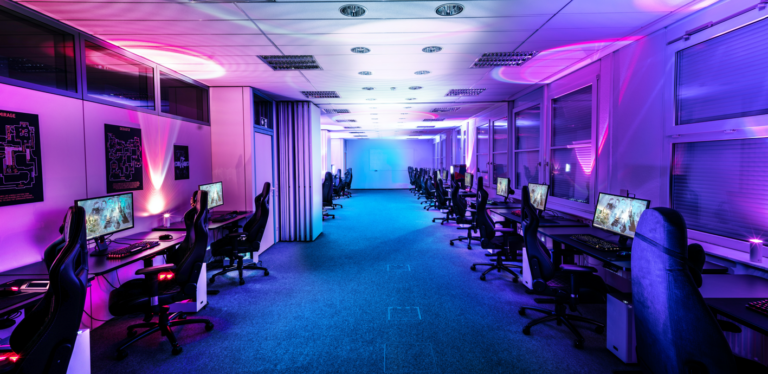In recent years, Chinese game market develops rapidly. From stand-alone to online games, and from the client game to mobile phone games, the center of gravity of the two-game market in China in transfer has brought structural adjustment within almost 1 ~ 2 years. Online games and mobile games markets let China replace the United States as the world’s largest game market country. The gap between the two will be further pulled in the next three years as well, which is mainly due to the rapid development of China Mobile market. 2015 the revenue of China’s game market reached 22 billion 200 million U.S. dollars, more than 21 billion 900 million U.S. dollars of America. Although mobile game is playing an important driving force for the growth of the Chinese game market, from an income level point of view, PC games in the Chinese market now still occupy dominant position with $152 billion in revenue in 2015, and the proportion accounted for 68% of the total income of China’s game market. Expected in 2018, the income of mobile games will be more than PC games. This article will discuss how to adapt to China’s game market from the view of China’s mobile market.
In 2015 global IOS mobile games developer revenue list, Netease (In 网易Chinese), Tencent, supercell, machine zone and King respectively occupy the top five. Chinese developers first occupied the IOS revenue list crown runner-up position. With the help of Fantasy Westward Journey released in March 2015 and Boast Swims on the West released in November, Netease was finally first to take the global IOS income champion.
Chinese customs, laws and regulations
In order to adapt to the Chinese game market, the company has to comply with the laws and regulations in China. No matter how perfect the game is in itself, it has to meet the regulation’s criteria. Do not expect to rely on the existence of loophole in the policy as the Chinese gaming regulatory authorities tends to focus on the review of foreign games. In all aspects of the game, it is important to not involve Chinese politics and to not attempt to question the Chinese government. If there is a problem, the platform or game will ban in China, such as Google. It is mandatory to respect all the decisions of the government.
Localization of the Chinese Game
 Foreign game operators are expected to pay more attention to the localization of the game design. The details of each game are supposed to adapt to the Chinese market indeed, taking the player needs as the main breakthrough is important. For example authentic translation in accordance with the local user’s language will bring a better user experience. Therefore, before entering the Chinese market, the game operators need to meet the preferences of the Chinese players, not only to complete all the translation work in advance but also a large number of detailed localization processing. Such as making appropriate changes in adapt to some Chinese festivals such as the Spring Festival, the Dragon Boat Festival, and the Mid-Autumn Festival etc. The NPC’s names (Non Player Character), the name of the locations and other translations should also be closer to the Chinese language. It also makes sense if adding Chinese content such as panda, ceramics, and “Hanfu” (Chinese clothes). These adaptations can make the game require more sense of identity, to narrow the cultural differences from the region so that the players will feel at ease. Promotional activities and frequent updates of the game will also draw attentions. After all, Chinese players have been accustomed to being attracted by a variety of activities or new content.
Foreign game operators are expected to pay more attention to the localization of the game design. The details of each game are supposed to adapt to the Chinese market indeed, taking the player needs as the main breakthrough is important. For example authentic translation in accordance with the local user’s language will bring a better user experience. Therefore, before entering the Chinese market, the game operators need to meet the preferences of the Chinese players, not only to complete all the translation work in advance but also a large number of detailed localization processing. Such as making appropriate changes in adapt to some Chinese festivals such as the Spring Festival, the Dragon Boat Festival, and the Mid-Autumn Festival etc. The NPC’s names (Non Player Character), the name of the locations and other translations should also be closer to the Chinese language. It also makes sense if adding Chinese content such as panda, ceramics, and “Hanfu” (Chinese clothes). These adaptations can make the game require more sense of identity, to narrow the cultural differences from the region so that the players will feel at ease. Promotional activities and frequent updates of the game will also draw attentions. After all, Chinese players have been accustomed to being attracted by a variety of activities or new content.
Promotions via Social Networks
Sina micro-blog, Wechat and QQ space are the largest social networks. Spreading effects via these social networks shouldn’t be underestimated. For instance, reward activities such as Cashback in the first charge allows users to experience the most practical deals with benefits, it is also a way to enhance the downloading games.
The biggest thread of the Game Industry
The phenomenon of game copy is very common in the game industry in china. Game copies have become a trend, their ability to copy games can surpass your imagination. In China, copy products covering genuine performances are often seen. Therefore, a mobile game or video game operator needs to think about how to prevent this phenomenon. China’s regulation for the protection of the intellectual property is remaining rare. Therefore, including a cost for strengthening the complexity of the game should be taken into account. For instance by updating a game with a higher level of technology.
To know more about China’s market, contact us at dx@daxueconsulting.com



